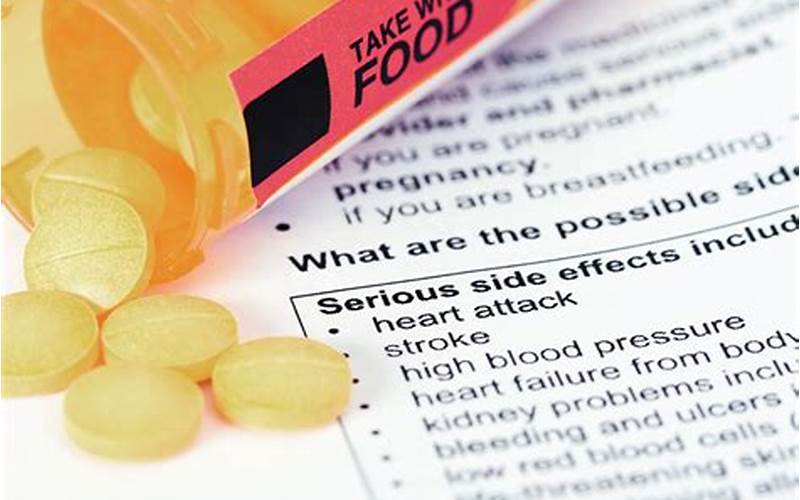 Source: tse1.mm.bing.net
Source: tse1.mm.bing.netIf you've ever experienced vomiting shortly after consuming medication, you may wonder why this happens and what you can do to prevent it. Vomiting after taking medicine can be a distressing and uncomfortable experience, but it is important to understand the potential causes and explore remedies to alleviate this issue. This article aims to provide you with an informative guide on the various factors that may lead to immediate vomiting after taking medicine, along with practical tips on how to manage and prevent this unpleasant reaction.
Causes of Vomiting After Taking Medicine
 Source: tse1.mm.bing.net
Source: tse1.mm.bing.netThere are several possible causes for vomiting after taking medicine. It is crucial to identify these causes to determine the appropriate course of action. Here are some common factors that can contribute to this reaction:
1. Sensitivity to Medication
 Source: tse1.mm.bing.net
Source: tse1.mm.bing.netSome individuals may have a heightened sensitivity or intolerance to certain medications, resulting in nausea and vomiting shortly after ingestion. This sensitivity can be due to various factors, such as the composition of the medication or individual differences in metabolism.
2. Incorrect Administration
 Source: tse1.mm.bing.net
Source: tse1.mm.bing.netTaking medication incorrectly, such as not following the prescribed dosage or not taking it with food if required, can lead to a range of adverse effects, including vomiting. It is essential to carefully read and follow the instructions provided by your healthcare professional or the medication label to ensure proper administration.
3. Side Effects of Medication
 Source: tse1.mm.bing.net
Source: tse1.mm.bing.netVomiting can be a known side effect of certain medications. Some drugs interact with the body in a way that triggers the emetic response, causing nausea and subsequent vomiting. It is vital to be aware of potential side effects and consult your healthcare provider if you experience severe or persistent vomiting.
4. Allergic Reactions
 Source: tse1.mm.bing.net
Source: tse1.mm.bing.netIn rare cases, vomiting after taking medicine can be an indication of an allergic reaction. Allergies to medications can manifest in various ways, including gastrointestinal symptoms like vomiting. If you suspect an allergic reaction, seek immediate medical attention to prevent further complications.
5. Underlying Medical Conditions
 Source: tse1.mm.bing.net
Source: tse1.mm.bing.netCertain medical conditions, such as gastroesophageal reflux disease (GERD), peptic ulcers, or gastrointestinal infections, can make individuals more susceptible to vomiting after taking medication. If you have a pre-existing medical condition, it is crucial to discuss your concerns with a healthcare professional for appropriate guidance.
Remedies for Vomiting After Taking Medicine
 Source: tse1.mm.bing.net
Source: tse1.mm.bing.netIf you regularly experience vomiting after taking medication, there are several remedies and preventive measures you can try. However, it is important to consult your healthcare provider before implementing any new strategies. Here are some potential remedies that may help alleviate this issue:
1. Take Medication with Food
 Source: tse1.mm.bing.net
Source: tse1.mm.bing.netCertain medications can cause irritation to the stomach lining, leading to nausea and vomiting. Taking medication with a small meal or snack can help reduce stomach irritation, making it less likely to trigger vomiting. However, it is essential to check the specific instructions for your medication, as some drugs may require an empty stomach for optimal absorption.
2. Adjust Dosage and Timing
 Source: tse1.mm.bing.net
Source: tse1.mm.bing.netIn some cases, vomiting may occur due to an inappropriate dosage or timing of medication. Consult your healthcare provider to determine if adjusting the dosage or changing the timing of administration can minimize the risk of vomiting. They will provide guidance based on your specific needs and medical condition.
3. Change Medications
 Source: tse1.mm.bing.net
Source: tse1.mm.bing.netIf vomiting persists despite trying various remedies, it may be necessary to explore alternative medications. Your healthcare provider can help identify alternative options that are less likely to cause vomiting or recommend additional treatments to manage your condition.
4. Antiemetic Medications
 Source: tse1.mm.bing.net
Source: tse1.mm.bing.netIn some cases, your healthcare provider may prescribe antiemetic medications to help prevent or alleviate vomiting caused by medication. Antiemetics work by blocking signals in the brain that trigger the vomiting reflex. However, these medications should only be used under the guidance of a healthcare professional.
5. Treat Underlying Conditions
 Source: tse1.mm.bing.net
Source: tse1.mm.bing.netIf an underlying medical condition is contributing to vomiting after taking medication, addressing and treating that condition may help alleviate the symptoms. Consult with a healthcare professional to discuss appropriate treatment options and management strategies for your specific condition.
When to Seek Medical Attention
 Source: tse1.mm.bing.net
Source: tse1.mm.bing.netWhile occasional vomiting after taking medication may not be a cause for concern, there are instances where medical attention should be sought. Consider contacting a healthcare professional if you experience any of the following:
1. Severe or Persistent Vomiting
 Source: tse1.mm.bing.net
Source: tse1.mm.bing.netIf vomiting is severe, persistent, or accompanied by other concerning symptoms, such as abdominal pain, fever, or dehydration, it is crucial to seek immediate medical attention. These symptoms may indicate a more serious underlying condition that requires further evaluation and treatment.
2. Allergic Reactions
 Source: tse1.mm.bing.net
Source: tse1.mm.bing.netIf you suspect an allergic reaction to the medication, such as difficulty breathing, swelling, or hives, seek emergency medical care. Allergic reactions can be life-threatening and require immediate attention.
3. Medication Interactions
 Source: tse1.mm.bing.net
Source: tse1.mm.bing.netIf you are taking multiple medications and experience vomiting after their administration, consult with your healthcare provider. Certain drug interactions can lead to adverse effects, including vomiting, and necessitate adjustments to your medication regimen.
Conclusion
Vomiting immediately after taking medication can be an unsettling experience, but it is essential to address the underlying causes and explore potential remedies. Sensitivity to medication, incorrect administration, side effects, allergies, and underlying medical conditions can all contribute to this reaction. By taking precautions such as consuming medication with food, adjusting dosage and timing, or exploring alternative medications, you can potentially reduce the likelihood of vomiting. However, if vomiting persists, worsens, or is accompanied by severe symptoms, seeking medical attention is crucial. Always consult with your healthcare provider for personalized advice and guidance tailored to your specific needs.
Post a Comment for "Vomit Immediately After Taking Medicine: Causes and Remedies"